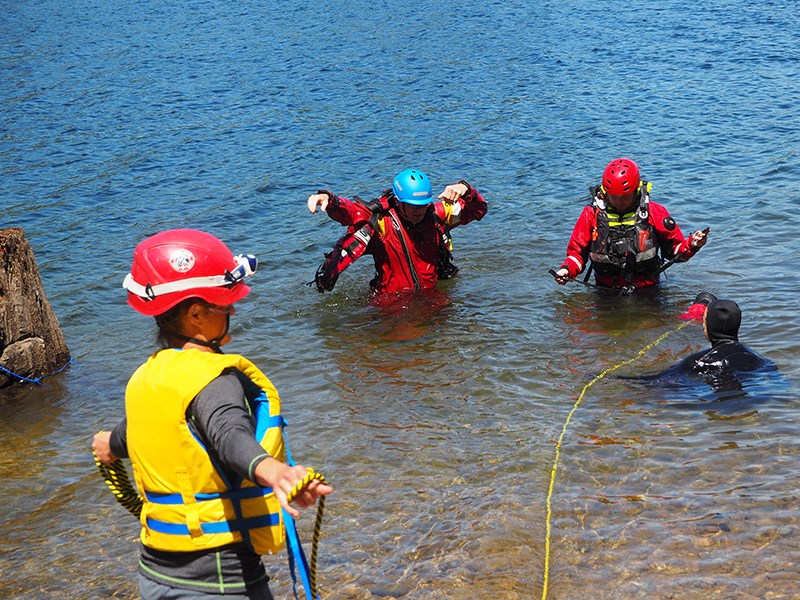Founded in 1967, Powell River Search and Rescue Society is one of 80 such groups around the province representing some 2,500 volunteers and responding to over 1,700 incidents each year.
“We are 100 per cent volunteers; we have about 30 members who are all field volunteers and probably another 15 members who are auxiliary volunteers,” said training officer Meghan Mckenzie. “Those are people who really can’t go into the field anymore or don’t want to do a lot of hiking, but have specialty skills in other areas.”
The group works together with local emergency responders and averages about 30 calls per year, according to Mckenzie.
The search and rescue team can be called out by a few different agencies including the RCMP, Powell River Fire Rescue and BC Ambulance Service.
“We can get called out by BC Parks, the coroners service, and by the government directly,” said Mckenzie.
In Powell River, the group receives quite a few calls for injuries and medical rescues for hikers, as well as overdue hikers.
“A lot of hikers who weren’t able to make it home in the time they thought they would, so their family is worried,” she added.
The area covered by the group is extensive.
“We have quite a large search area,” said Mckenzie. “It covers some of the islands in the area like Texada and Quadra and then goes quite far north of us.”
The group meets twice monthly to practice skills, and last weekend got together with team members from Campbell River Search and Rescue to learn about water rescue techniques, including in swift water.
“Swift water basically means it’s moving fast; it could take your legs out when you’re standing in it,” said Mckenzie. “We do have a little bit of swift water here in Powell River. I believe our biggest swift water area is up in front of one of the main climbing destinations on the other side of Powell Lake.”
The Campbell River team has some level-four technicians qualified to oversee a swift water rescue and shared their knowledge with the group.
“Here in Powell River we let the RCMP dive team handle it currently,” said Mckenzie. “We do a lot of the shoreline searches and we work with them.”
The weekend training exercise allowed local team members to get familiar with different rescue techniques and types of equipment used.
“We did a presentation back at our base where we talked about all the swift water gear that their team carries,” added Mckenzie. “But also just for general water rescues for lakes because we have a lot of lakes in our area. They gave us a lot of tips for the type of gear we could be carrying in order to do rescues more efficiently here, and what those would cost.”
The group went to Lois Lake to put some of the learning into practice, including techniques of throw bags.
“They're 70-metre floating ropes all coiled in a bag and the idea is if somebody is in the water and drowning, you can throw them one end of this rope in a bag and pull them to shore.”
Powell River Search and Rescue Society is currently seeking new membership.
“We are doing our first recruitment drive this year and giving out applications for people interested in joining,” said Mckenzie. “We are looking for anybody who has a little bit of time and loves to be outdoors.”
The group requires that anybody who wants to join gets a seven-hour first-aid certificate, fills out a driver’s abstract and a criminal record check. In addition to field volunteers, the society hopes to find more auxiliary members.
“Anybody who has radio training or technical training in terms of mapping, and anyone who wants to help out with taking care of our equipment and keeping our gear clean and organized is welcome,” said Mckenzie.
Those interested can contact the group through its Facebook page.



